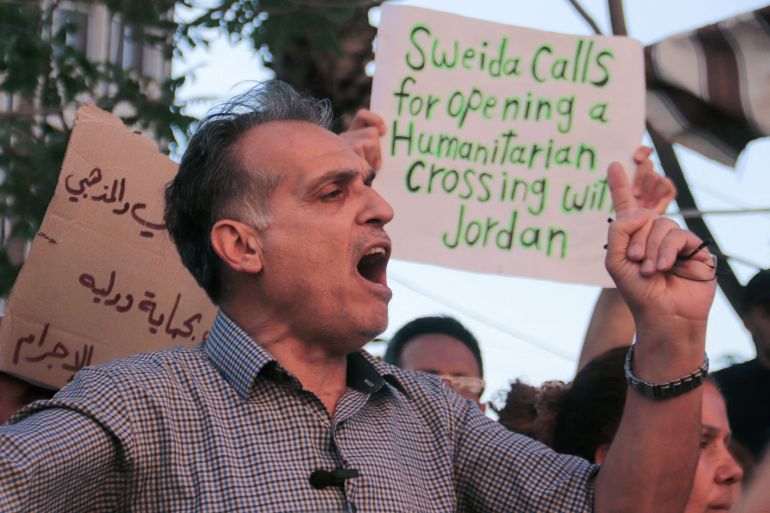The United Nations issues a warning that the humanitarian situation is still critical after last week’s deadly clashes, which left thousands of people homeless and essential services in disrepair.
Initial conflicts between Druze fighters and Sunni Bedouin tribes in Suwayda province, which started on July 13 and ended with a ceasefire a week later, were fought for decades. Later, government forces joined the Bedouin armed groups in fighting.
A Syrian Red Crescent convoy entered Suwayda on Monday, according to a report from state television that featured images of trucks entering the area.
According to state news agency SANA, the 27-truck convoy “has 200 tons of flour, 2, 000 shelter kits, 1, 000 food baskets,” as well as medical and other food supplies.
The Syrian government, the local community, and international organizations worked together to support the effort.
UN warns about a pressing situation
OCHA, the UN’s humanitarian agency, stated that the humanitarian situation in Suwayda province “remains critical amid ongoing instability and intermittent hostilities,” despite the ceasefire’s largely successful conclusion.
According to a statement from OCHA, “humanitarian access is still constrained by roadblocks, insecurity, and other impediments, preventing humanitarians from thoroughly assessing need and providing crucial life-saving assistance on a large scale.”
According to the report, the violence led to power and water outages as well as food, medicine, and fuel shortages.
Suwayda24, a local news outlet, reported that “Suwayda has a dire need for humanitarian aid,” adding that the province needed many more aid convoys.
On Monday, it claimed demonstrations demanding more humanitarian aid were held in a number of locations.
Local civil and humanitarian organizations issued a warning about a “humanitarian catastrophe” in Suwayda on Sunday, adding that the province is “under a suffocating, escalating siege imposed by the authorities,” which has resulted in a severe lack of basic supplies.
Government forces were stationed in some areas of the province, according to the Syrian Observatory for Human Rights, but traffic was hampered by the Suwayda-Damascus highway’s ongoing closure due to government-affiliated armed groups.
According to Mustafa al-Bakkur, the provincial governor of Suwayda, aid convoys regularly enter Suwayda province and “the roads are unobstructed for the entry of relief organizations to the province,” SANA quoted provincial governor al-Bakkur on Sunday.
Taus thousands of people were displaced by the bloody clashes.
More than 250 people were killed in the clashes, which threatened to end Syria’s post-war transition.
According to the UN’s International Organization for Migration, 128, 571 people were also displaced by the violence.
According to witnesses, experts, and the Syrian Observatory for Human Rights monitor, government forces intervened on the Bedouin’s side during the clashes.
Israel intervened and launched airstrikes on Syria’s Ministry of Defense structures in Damascus.
Israeli forces also attacked Syrian government forces in Suwayda province, claiming they were protecting the Druze, who Israel refers to as its “brothers.”
Russia and Turkiye call for the protection of Syria’s territorial integrity.
Vladimir Putin, the president of Russia, emailed Israeli Prime Minister Benjamin Netanyahu about the importance of Syria’s territorial integrity following the Israeli attacks.
According to a Kremlin statement, Putin, an ally of former Syrian leader Bashar al-Assad, also stated that political stability in the nation must be achieved through the protection of “all ethnic and religious groups’ interests.
A senior Turkish official urged Damascus’ efforts to stabilize the war-torn nation, as well as for continued de-escalation and the end of Israeli military operations in Syria.
Deputy Foreign Minister Nuh Yilmaz stated to the UN Security Council that “from now on it is important to ensure continued de-escalation, Israeli non-aggression, support for the Syrian government’s efforts to restore calm in Suwayda and prevent civilian casualties.”
Source: Aljazeera

Leave a Reply